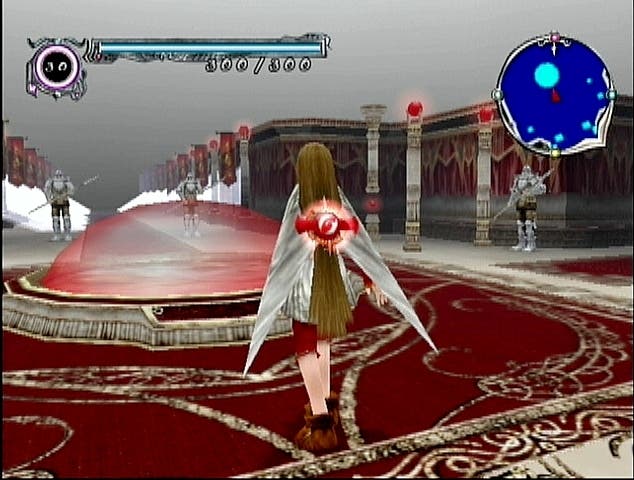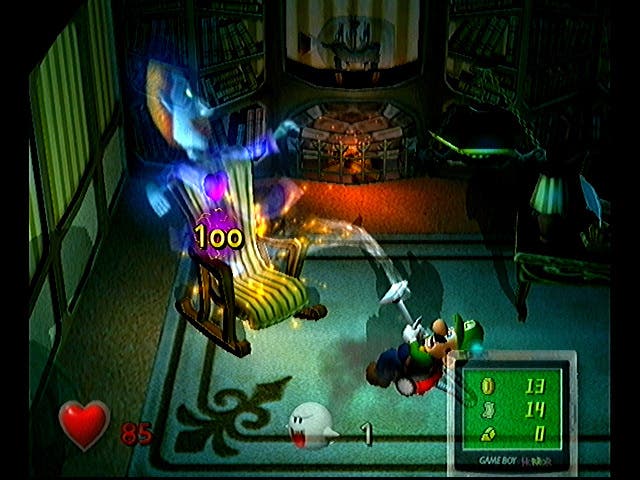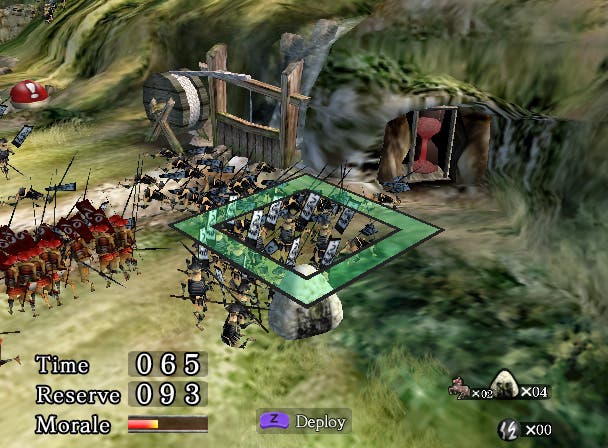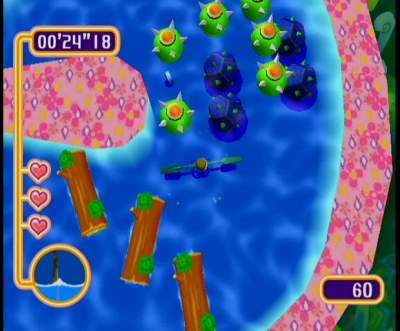Cult Classics: GameCube
Part 3: Ducks, plumbers, wizards, ghosts, pirates.
Did you read parts one and two? Shame on you! Whatever your answer. In our final selection of Cult Classics for GameCube, Keza touches on all the most influential genres: real-time pinball strategy, asymmetrical team-based '80s arcade games, rhythm shooters, and duck-based top-down aviation puzzling.
Lost Kingdoms 1 and 2
- Developer: From Software
- Release: 2002 and 2003

These two, like Baten Kaitos, are card-battling games, but they don't bring as much polish and aesthetic flair to the genre as Namco's effort. Their world is neither as gorgeous nor as distinctive as Baten Kaitos', but the card battling is probably very slightly better, and certainly more accessible. If you're into your Magic or card-battling in general, you'll probably force your way through this game's faults to enjoy it now that it's not GBP 40 of your money, and the multiplayer card-battling actually tips these two games into the realm of 'recommended' instead of leaving it to lurk with the rest of the losers in the 'average' zone.
What we said: "Entertaining though Lost Kingdoms can be when it's raising two fingers to RPG convention, it's still blighted by conventional RPG problems."
Luigi's Mansion
- Developer: Nintendo
- Release: 2001

Okay, this isn't really a cult classic. It was a GameCube launch title and sold plenty (well, by GameCube standards). But it feels like a cult game - a strange, offbeat, interesting diversion, an experiment, a ten-hour (if that), humorous novella of a game. Nintendo's excuse for delivering such an oddity for a console launch in place of a Mario or a Zelda was that it was adapting to the times, that it was going to release smaller games more often instead of annual big hits - unfortunately, that turned out to be a bit of a lie, but Luigi's Mansion is at least an interesting product of that philosophy.
Nintendo really is good at making games that work with their technology. Luigi's Mansion is so intrinsically GameCube; it's one of about six games that ever bothered to use the pressure-sensitive shoulder buttons properly, and like Wind Waker, it has a graphical style that works perfectly happily within the limits of its technology. It will never look dated. Playing this through again, you realise that Luigi's Mansion was far from the lazy cobbled-together launch title that many disappointed, Mario-hungry fans labelled it. It is carefully and cleverly designed to maintain tension and atmosphere, closing off the mansion tantalisingly, much like Peach's Castle in Mario 64. It's a funny, endearing, innovative game, full of slapstick scares and little fan-pleasing in-jokes. It deserves so much more love than it gets.
What we said: "Luigi's Mansion is a delightful little game, instantly appealing to anybody with more than a passing interest in its heritage."
Odama
- Developer: Vivarium
- Release: 2006

Odama might be brilliant. I'm not sure that anyone on earth could really make their mind up about it. It's certainly the most intricately fascinating game that the Cube ever had, with its elaborate rules and strategies, most of which you ended up discovering by accident. There's little point trying to explain how Odama's mix of pinball, military strategy and Japanese philosophy works - instead, it's better to say that if you like interesting games, Odama is a must-have. It's so detailed and so weird, and there's nothing else remotely like it in the world.
What we said: "If you care about games rather than simply caring about which games are good, you'll want to play it."
Kururin Squash
- Developer: 8ing
- Release: 2004 (Japan only)

You are a duck in a helicopter, but don't let that worry you too much, because Kuruin Squash - like its GBA launch title predecessor, Kuru Kuru Kururin - is in all practical senses a maze game where you manouevre a spinning bar past obstacles while trying not to let it touch anything (see, no need to be frightened). It's over in no time at all, but it's completely captivating until it is, thanks to cute, amazingly smooth graphics and inventive level design. At the time we moaned that it gave it all up a bit too easily, which it does, but that hardly matters now; if you get the chance to buy it, just do.
What we said: "It'll captivate you for as long as it lasts, but don't be surprised if it then spins off onto a shelf with only a duck in a helicopter's chance of ever returning to the fore."

